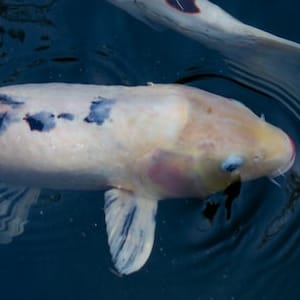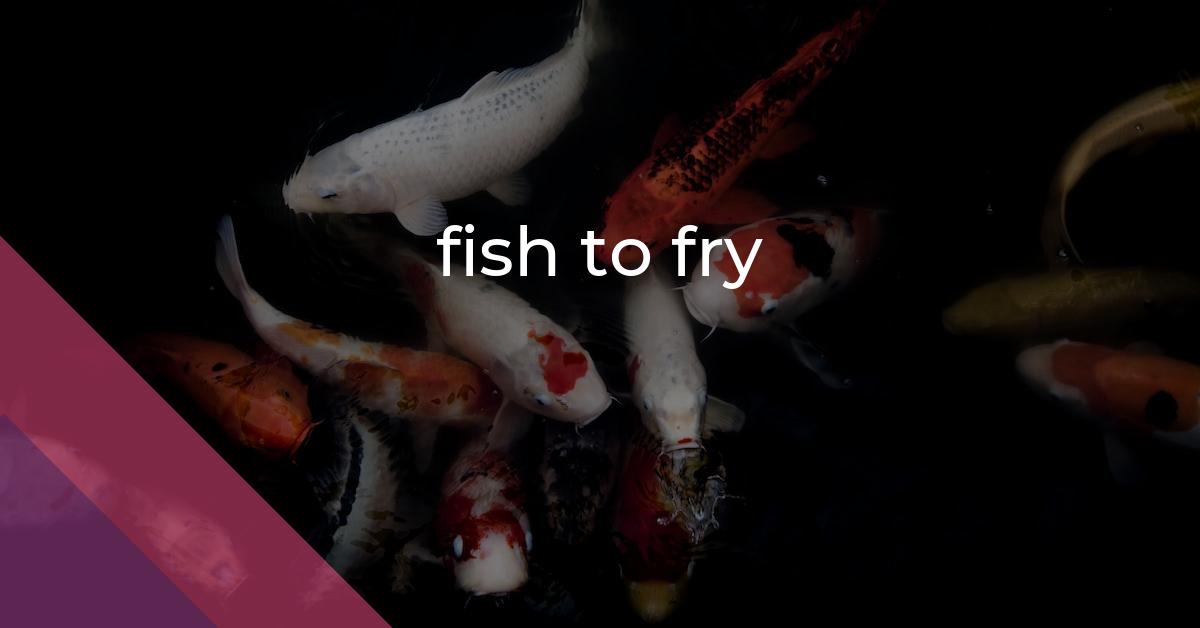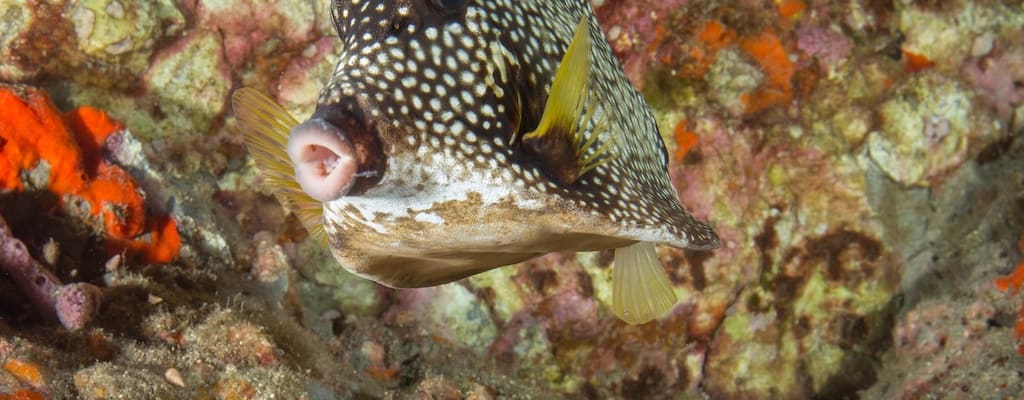fish to fry: Idiom Meaning and Origin
What does ‘fish to fry’ mean?
The idiom "fish to fry" means to have more important or pressing matters to attend to than the current one being discussed or dealt with.

Idiom Explorer
The idiom "kettle of fish" refers to a difficult or messy situation. It implies a situation that is full of complications, problems, or confusion.
The idiom "irons in the fire" means having multiple projects or tasks in progress or pursuing multiple opportunities at the same time. It suggests being busy with various things and being proactive in pursuing new prospects or ventures.
The idiom "in the weeds" means being overwhelmed or swamped with work or tasks, typically to the point of being unable to keep up or falling behind.
The idiom "have other fish to fry" means to have other more important or interesting things to do or be concerned with.
The idiom "hang out to dry" means to leave someone in a difficult or vulnerable situation without support or assistance.
The idiom "goose is cooked" means that a person or situation is in a dire or hopeless position, with no chance of escape or success.
The idiom "gone fishing" is used to indicate that someone is taking a break or not available, often to imply that they are avoiding or neglecting responsibilities.
The idiom "go fish" means to request for someone to provide a requested item of information or to seek out something that is desired or needed. It is often used to indicate that the person being asked does not possess or know the desired item.
The idiom "get down to business" means to focus on the task or purpose at hand, and to start doing what needs to be done without wasting time.
The idiom "fry up" means to prepare a meal by cooking food in hot oil or fat. It can also be used figuratively to describe a situation where something is being heated up or intensified.
Origins Unraveled
The idiom "fish to fry" is used to express that someone has more important or pressing matters to attend to than the current situation or task at hand. It is often used in a dismissive or uninterested manner, indicating a lack of concern or desire to engage in a particular activity.
The origin of this idiom can be traced back to the 18th century when it first appeared in various forms. One of the earliest instances can be found in a letter written by Benjamin Franklin in 1768, where he used the phrase "other fish to fry." This use of "fish" in idiomatic expressions is a long-standing tradition in the English language, often signifying a different matter or priority.
The metaphorical nature of this idiom stems from the idea of a person having multiple tasks or responsibilities to attend to, similar to a fisherman who catches different types of fish. By using this idiom, one implies that their time and attention are limited, and they have more important things to focus on.
"Fish to fry" is often used to brush off unwanted requests or invitations, indicating a lack of interest or inclination to participate. It can also be used humorously or sarcastically, suggesting that the current situation is trivial or inconsequential compared to other more significant matters.
The related idiom "bigger fish to fry" takes the concept of having more important matters and expands on it. It suggests that there are even more significant and pressing things to attend to, making the current situation seem even less relevant. For example, someone might say, "I can't bother with that petty argument. I have bigger fish to fry."
A similar idiom, "have other fish to fry," conveys the same sentiment but with a slightly different emphasis. It implies that in addition to important matters, there are also other tasks or responsibilities that take precedence over the current situation. This idiom can be used to express a lack of time or motivation to engage in the current activity. For instance, one might say, "I'm sorry, I can't help you with that project. I have other fish to fry."
The idiom "fish in troubled waters" adds an element of difficulty or adversity to the concept of having more important matters. It indicates that the other tasks or responsibilities one must attend to are not only more important but also more challenging or problematic. It suggests that dealing with those matters takes priority over the current situation. For example, someone might say, "I can't focus on this minor issue right now. I have bigger fish in troubled waters to deal with."
The phrase "gone fishing" is a lighthearted way of saying that one has decided to take a break or step away from work or responsibilities to do something enjoyable or relaxing. It can be used in the context of having more important matters to attend to, suggesting that taking a break from those responsibilities is necessary for one's well-being. For instance, someone might say, "I have so many deadlines, but I need a break. I'm going fishing."
The idiom "fish out" refers to the act of searching for or discovering something or someone. It can be used in the context of having more important matters to attend to by suggesting that the current situation is not worth the effort of searching for a solution or resolution. It implies that the person or task at hand is not significant enough to warrant further attention. For example, someone might say, "I'm not going to spend any more time trying to figure out this issue. I have other fish to fry."
Overall, the idiom "fish to fry" and its related idioms provide a convenient and versatile way to express disinterest, prioritize one's time and attention, and convey the concept of having more important matters or tasks to attend to. These idioms contribute to the rich tapestry of figurative language in the English language, allowing for concise and impactful communication.
Example usage
Examples of how the idiom "fish to fry" can be used in a sentence:
- She ignored her friend's invitation to go shopping, saying she had other fish to fry.
- The manager was too busy handling a major project, he told his colleague that he had bigger fish to fry.
- Instead of wasting time on trivial matters, the teacher emphasized the importance of focusing on the main task at hand, stating that they all had their own fish to fry.
More "Leisure" idioms



